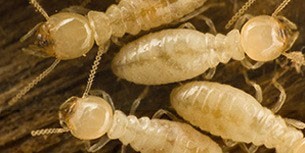Blog
5 Diseases That Can Be Carried By Mice and Rats
If the mere thought of stumbling over a rat in your home has you shuddering in horror, then you’re probably not going to like reading that far from simply being unpleasant, rodents can actually cause serious health issues. We take a look at five diseases that can be carried by mice and rats, and how these are spread – which might just have you contacting the best pest control company you can find!

How rodents can spread diseases
According to the WA Department of Health, diseases can be passed on from rodents to humans in a number of ways, through:
- Unsafe handling of rats and mice.
- Eating food or drinking water that is contaminated with rat or mice hair or droppings.
- Direct contact with rodents or other animals that have been infected by them.
Five diseases that rodents can carry
Here are five very good reasons why you don’t want rodents in your home.
- Lymphocytic choriomeningitis: This virus can be passed on through direct contact withurine or droppings from house mice, or even through breathing in contaminated dust.The US Centers for Disease Control and Prevention (CDC) states that the symptoms are similar to the flu, with fever, vomiting and aches and pains. Possible complications include meningitis or encephalitis.
- Rat bite fever: This bacteria occurs worldwide, and can cause vomiting, headaches, joint pain and a rash. You can be infected by being bitten, by having contact with a dead rat or by consuming food or water contaminated with infected droppings.
- Salmonella: Salmonella is a bacteria that lives in the droppings of a number of animals, including rats and mice. It can cause severe gastro symptoms, and can be spread through direct contact with an infected animal, or by eating contaminated food.
- Leptospirosis:According to the CDC, leptospirosis is a bacteria that can be carried by rodents and other animals. It is passed on through direct skin contact with water or soil that has been contaminated with the urine of infected rodents, or through consumption of contaminated food or water. In humans, it causes flu-like symptoms, and in some cases, patients may recover initially then fall ill again with a more serious condition such as meningitis.
- Zoonotic lung worm: It’s not just humans that pick up diseases from rats either. Rodents can pass on lung worm to a variety of animals, including dogs, and this can cause neurological problems. According to the book Pathogens in Invasive Animals in Australia, published by the Invasive Animals Cooperative Research Centre at the University of Canberra, rodents become infected by eating slugs and snails, and then pass it on to other animals.
What can you do if have a rodent problem at home?
It is important to take steps to ensure that rats and mice are not welcome in your home. The best way to prevent rodents from taking up residence is to keep your home clean and free of clutter. Leaving food scraps out overnight or letting piles of paper accumulate can add up to an inviting environment for rats and mice.If you spot droppings or sight a rodent, call in the professionals. A reputable home pest control company can advise you on your options for getting rid of your unwelcome intruders.



